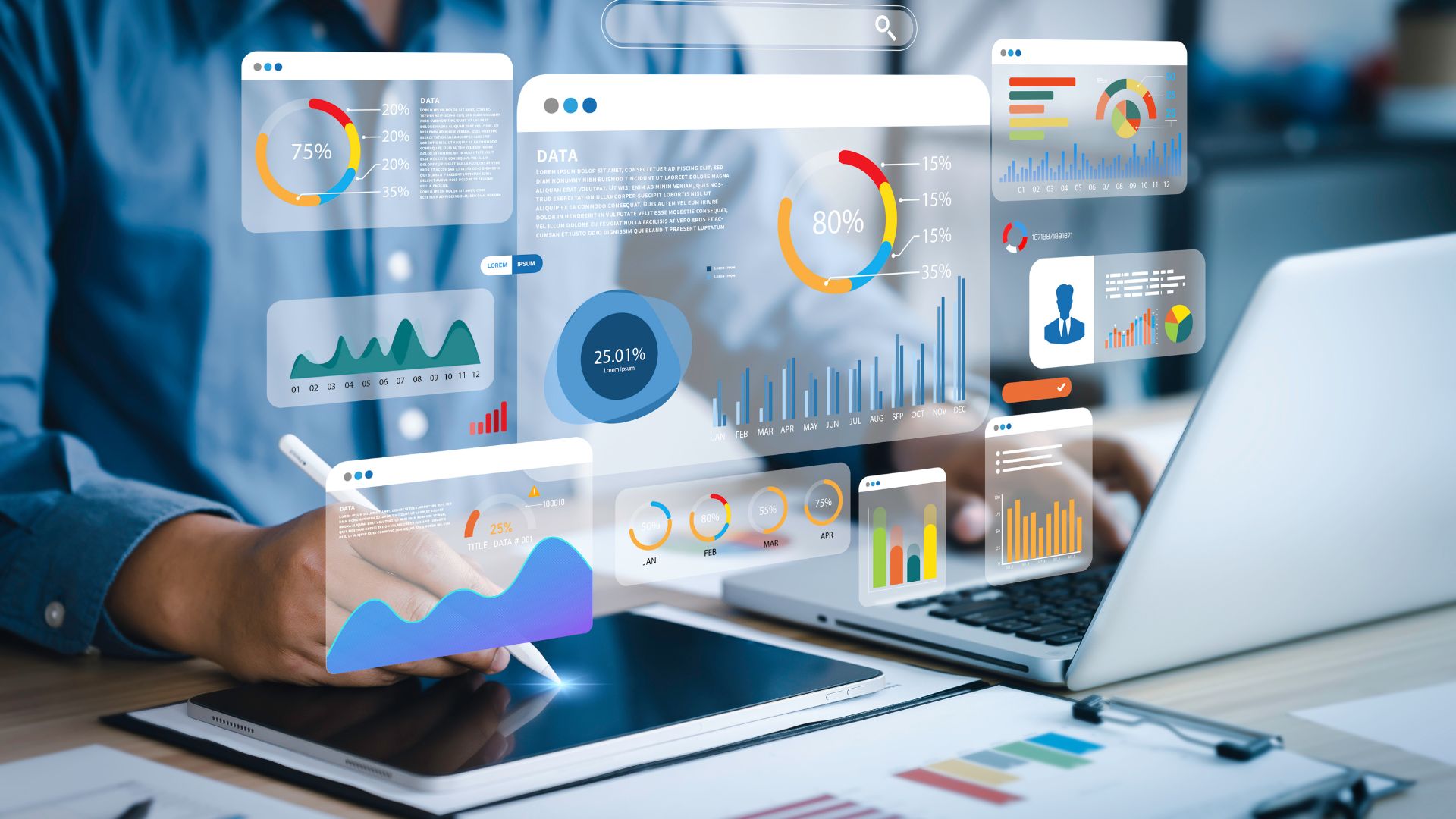Secure Collaboration
Visualize your safeguarded digital economy
According to a Metrigy report, 68% of companies have enabled team messaging and collaboration for remote work. In an increasingly interconnected and digital business environment, organizations face significant challenges in ensuring secure collaboration among employees, partners, and stakeholders. Companies need to balance the benefits of collaboration with the imperative to protect sensitive information and intellectual property from cybersecurity threats, data breaches, and unauthorized access.
Secure Global Collaboration with Information Labeling and Handling
Discover how NextLabs bridges gaps and offers key solutions to integrate technologies in the A&D industry
Information Rights Management and Document Control
Learn how to enhance visibility and collaboration while maintaining the confidentiality of planning and manufacturing data
Entitlement Manager for Network File Shares
Explore fine-grained access control and auditing for SMB/CIFS, Samba, and Windows servers with ABAC. Prevent unauthorized file store access from mobile users on unmanaged hosts, regardless of location or device

Safeguard Digital Twin and File Sharing
In many industries, especially those with complex computing systems, digital twins play a significant role. Digital twins face cyber threats that can compromise sensitive information and disrupt operations. Additionally, in distributed supply chains, organizations possess a wide range of data which includes intellectual property, sensitive customer information, and financial data. This underscores the importance of ensuring secure file sharing among supply chain collaborators without compromising data integrity and confidentiality.
Insider Risks
A 2023 Insider Threat Report state that 74% of organizations have seen an increase in insider attacks. Data security risks arise from over-privileged access and insufficient data controls, leading to privileged users intentionally sharing sensitive information or well-meaning employees might inadvertently expose sensitive data to non-permitted users. This highlights the need for least privileged access and robust controls to prevent data loss, protect partnerships, intellectual property, and avoid financial losses.


External Collaboration
When collaborating with external partners like vendors or clients, there’s a heightened risk of security breaches or loss of data control if these partners lack proper security measures in place. Balancing the need for efficient collaboration with the imperative to maintain strict access controls is crucial to prevent unauthorized access to sensitive information. This involves determining the precise extent of necessary access without overprovisioning privileges, both within the organization and across its extended network.
Secure Data Collaboration Across the Enterprise
To overcome secure collaboration challenges, organizations must enable safe file sharing and protect digital twins. This requires persistent data protection and strict access controls to prevent unauthorized data transfers. A comprehensive approach to data security must include:
Distributed Policy Engine
A distributed policy engine simplifies collaboration by securely sharing files and digital twins among stakeholders while minimizing data compromise risks. It centrally manages and enforces security policies across the network, ensuring consistent controls. Real-time attributes and pre-defined policies are used to make informed decisions and automate actions, fostering a secure collaborative environment for users, regardless of geographic location.
Data-Centric Security Enforcement
A policy engine with data-centric security controls ensures secure information sharing by protecting files at rest, in transit, and in motion, regardless of location or recipient. Digital rights management (DRM) technology encrypts and controls access to digital files throughout their lifecycle. Fine-grained, real-time access controls based on user and environmental attributes restrict data access and actions to authorized users. Data loss prevention is crucial to prevent unauthorized data transfers and breaches.
Automation and Prevention
A policy engine automates security controls by centrally managing, defining, updating, and maintaining policies. This ensures that policies are enforced universally on any data store. By integrating with systems and applications, files are automatically protected based on policies upon storage or download. Without a secure file-sharing system to protect files persistently throughout their lifecycle, data breaches or data loss could occur due to unauthorized access or accidental deletion, risking critical files.
Real-time Logging and Visibility
Continuous monitoring of user and data activities allows real-time risk detection and adjustments. This approach enhances auditing and reporting, providing real-time visibility into resource usage for robust data governance and risk mitigation, enabling proactive defense measures to safeguard sensitive data. Built-in alerts enable organizations to proactively monitor networks and swiftly respond to suspicious activities, minimizing the impact of security breaches.
NextLabs Solution
CloudAz Unified Policy Platform
CloudAz provides granular control over access at both the application and file levels, ensuring that data is secured within applications and remains protected within files during collaborative efforts. By implementing dynamic policy evaluation and enforcement, organizations can ensure that only authorized users with the appropriate attributes can access sensitive data, regardless of where the data resides. This dual-layered approach enhances security by safeguarding data at various touchpoints, reducing the risk of unauthorized access or data breaches during collaboration.
SkyDRM Digital Rights Management
SkyDRM offers automated rights protection by using encryption, identity, and authorization policies to secure different file types such as CAD, PLM, and PDF. Digital rights can be applied to shared files, allowing data owners to control usage permissions for intended recipients, securing digital twins and files. The protection remains with files regardless of location, extending security to project data shared with partners. SkyDRM can also be integrated with ERP systems to safeguard data stored within the application and when it leaves the application during collaboration.

SkyDRM Digital Rights Management
SkyDRM offers automated rights protection by using encryption, identity, and authorization policies to secure different file types such as CAD, PLM, and PDF. Digital rights can be applied to shared files, allowing data owners to control usage permissions for intended recipients, securing digital twins and files. The protection remains with files regardless of location, extending security to project data shared with partners. SkyDRM can also be integrated with ERP systems to safeguard data stored within the application and when it leaves the application during collaboration.
Application Enforcer
Given the global nature of today’s business, workplace collaboration involves online communication for effective collaboration among stakeholders. Application Enforcer seamlessly integrates with enterprise and cloud applications by enforcing zero trust policies for online collaboration tools such as Microsoft Teams, Exchange, and SharePoint, based on real-time attributes and metadata. This simplifies access and enhances data protection across enterprise applications and services.
Data Access Enforcer (DAE) Data-Level Security Controls
While collaborating with external parties, authorized users should only access the data on a need-to-know basis. With dynamic field-level data masking, DAE uses policies to mask the data in the unauthorized fields based on attributes. Additionally, the granular record-level data segregation and filtering feature, users can only view the records or data to which they are permitted to by filtering based on attributes. By providing dynamic data-level security controls, DAE enables the secure sharing of critical information while collaborating in business processes.
CloudAz Report Server
CloudAz provides built-in alert capabilities that allow organizations to set monitors to alert any suspicious user activity, allowing for proactive monitoring of the user and data activities. CloudAz Control Center dashboard provides a centralized interface to monitor data and user activity logs, offering real-time insights into data usage and security events. This allows administrators to quickly identify anomalies, track user behavior, and detect potential threats, enhancing overall security posture.

CloudAz Report Server
CloudAz provides built-in alert capabilities that allow organizations to set monitors to alert any suspicious user activity, allowing for proactive monitoring of the user and data activities. CloudAz Control Center dashboard provides a centralized interface to monitor data and user activity logs, offering real-time insights into data usage and security events. This allows administrators to quickly identify anomalies, track user behavior, and detect potential threats, enhancing overall security posture.





